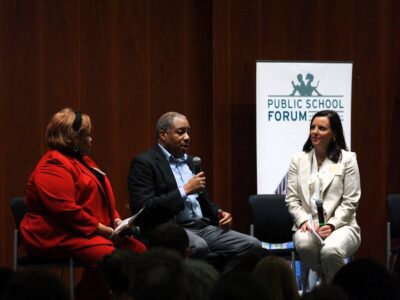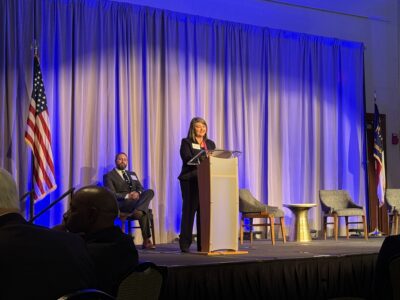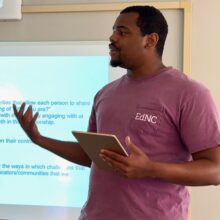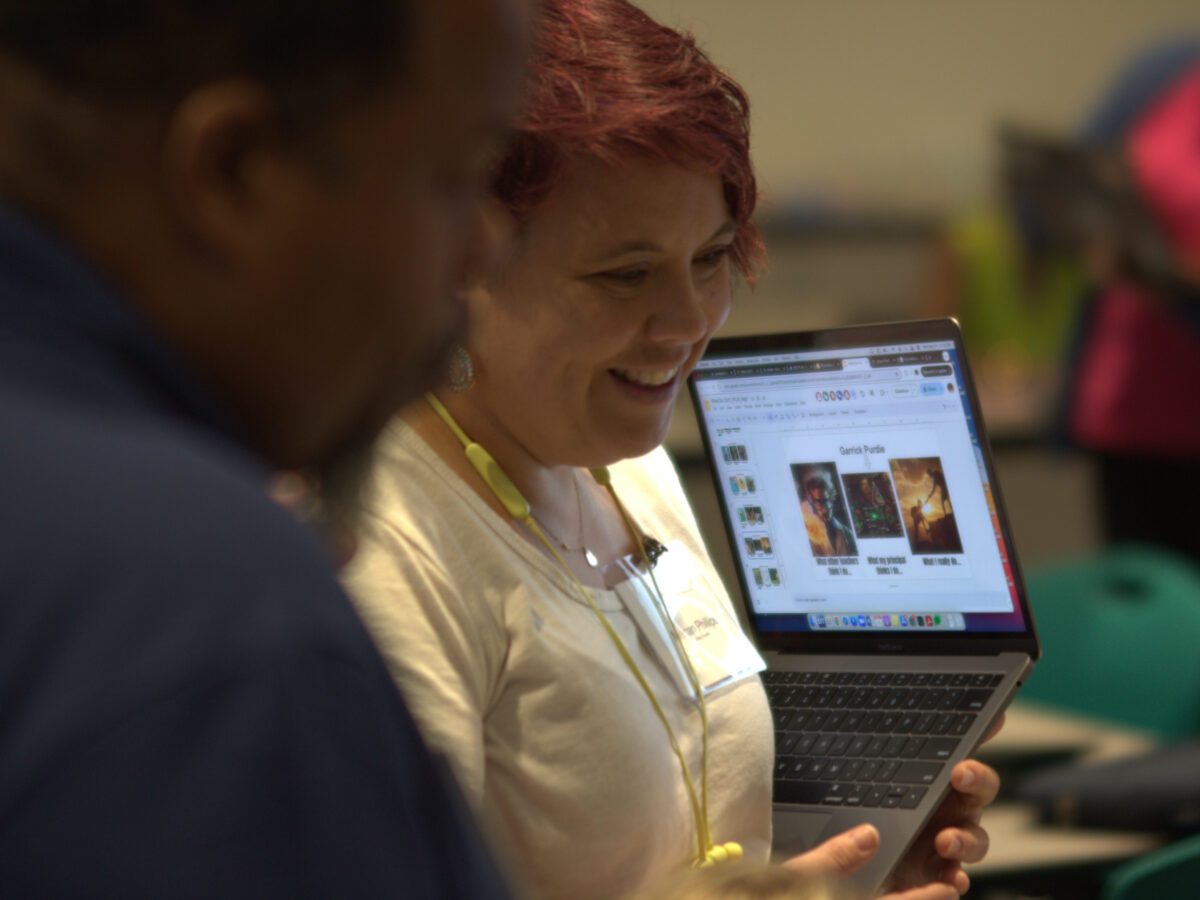
|
|
A small percentage of our society is ambidextrous. For the vast majority who are not, they likely struggle to write even their own name with their nondominant hand.
Aside from one kindergarten teacher who is accustomed to using both hands when teaching students to write, that was the case for the majority of educators who are part of the Rural Teacher Leader Network (RTLN).
Ashley Kazouh, associate director of the Dudley Flood Center for Educational Equity and Opportunity (Flood Center), used this activity to demonstrate the difficulty of changing a behavior or thought process, especially one that has been engrained since early childhood.
Yet, just as an individual may gradually enhance their functionality with their nondominant hand through consistent, intentional practice, Kazouh believes it is a necessity for educators to continue to develop and reshape their thinking in pursuit of a better education system for all students.
Sign up for the EdDaily to start each weekday with the top education news.
That is the basis for the professional development in which 30 educators across eastern North Carolina will engage as part of the fourth cohort of RTLN.
Katelyn Lopez-Lamb, Onslow County Schools educator and 2024-25 Rural Teacher Leader Network cohort member, said, “Being able to connect with students and focusing on your students in the classroom was really a big reflection. I feel like sometimes we can get lost in not wanting to go out of your comfort zone to be closer to students, and so being able to come here and learn about other educators who have been teaching for 20 plus years, and how they’re also continuing to learn how to be diverse in the classroom is really amazing and eye opening.”

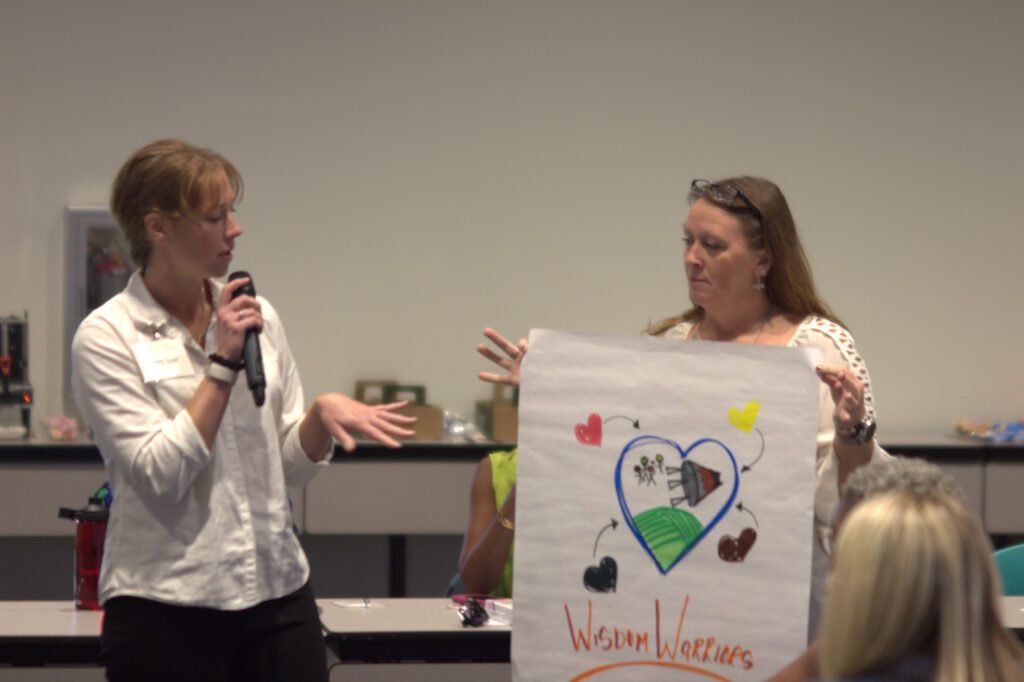
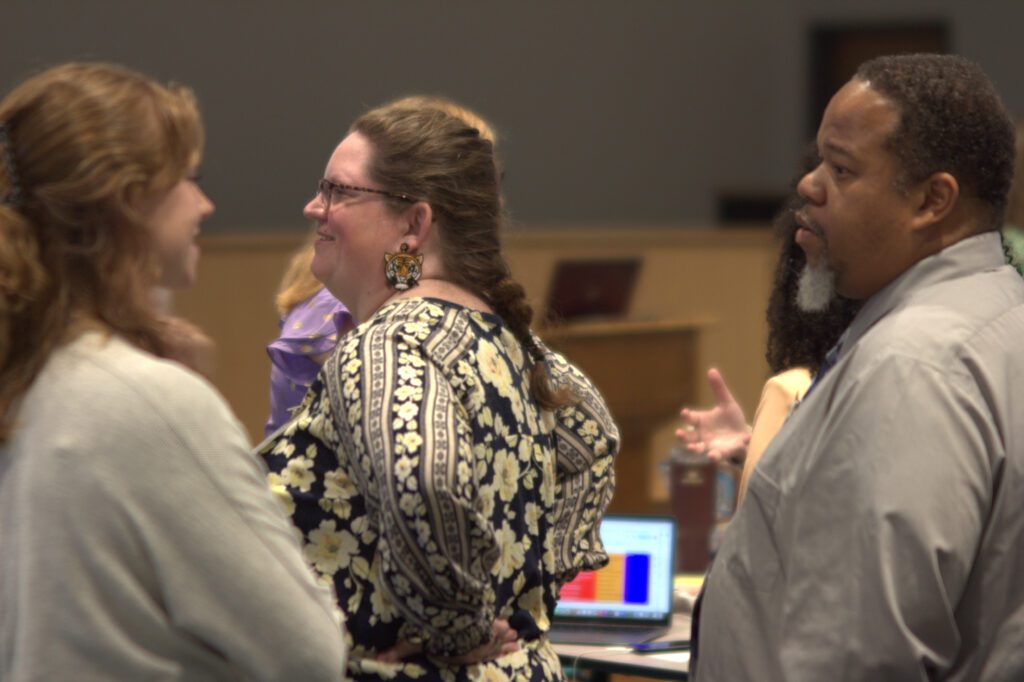
About the network
The Public School Forum of North Carolina launched the first cohort of the RTLN in 2021. Their objective is to sustain a network of rural educators who seek to improve their practice and foster community with teacher leaders from across districts. Facilitated by the Flood Center, participants engage in programming centered on growing their equity and trauma-informed practice while developing their advocacy and leadership.
“Adversity does not determine your destiny.”
Eulanda Thorne, program manager with the NC Center for Resilience & Learning
Last year the program hosted its first western cohort with participants from Alleghany, Ashe, Burke, Clay, Graham, Madison, Swain, Watauga, Wilkes, and Yancey counties.
The 2024-25 cohort is made up of rural southeastern educators from Duplin, Greene, Jones, Onslow, Sampson, Lenoir, Wayne, Robeson, Columbus, Scotland, Cumberland, Hoke, and Bladen counties.
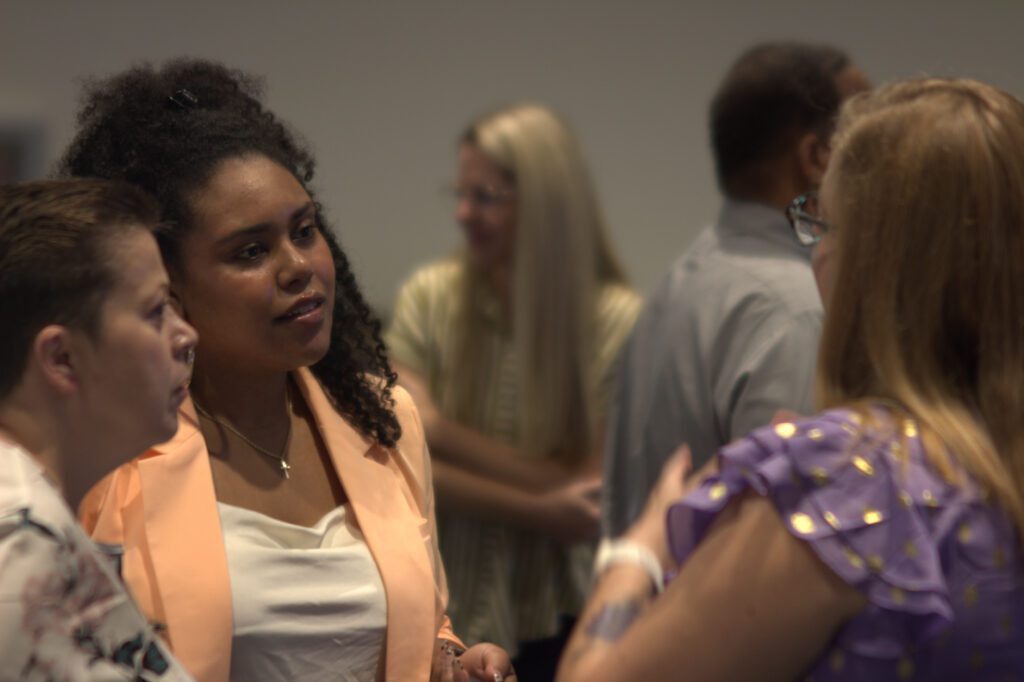
On Aug. 14-15, the newest cohort gathered for the first time in Jacksonville. There, they became familiar with one another through discussions with their cohort and their six smaller community groups. Over the course of the two days, participants completed various activities, including exploring their “why” statements, reviewing data from their respective districts, and even sharing their “Where I’m From” poems.
The convening served as an introduction to the next 16 months where participants will engage in training sessions focused on the different pillars of the program: global learning, trauma-informed strategies, policy and advocacy, and teacher leadership.

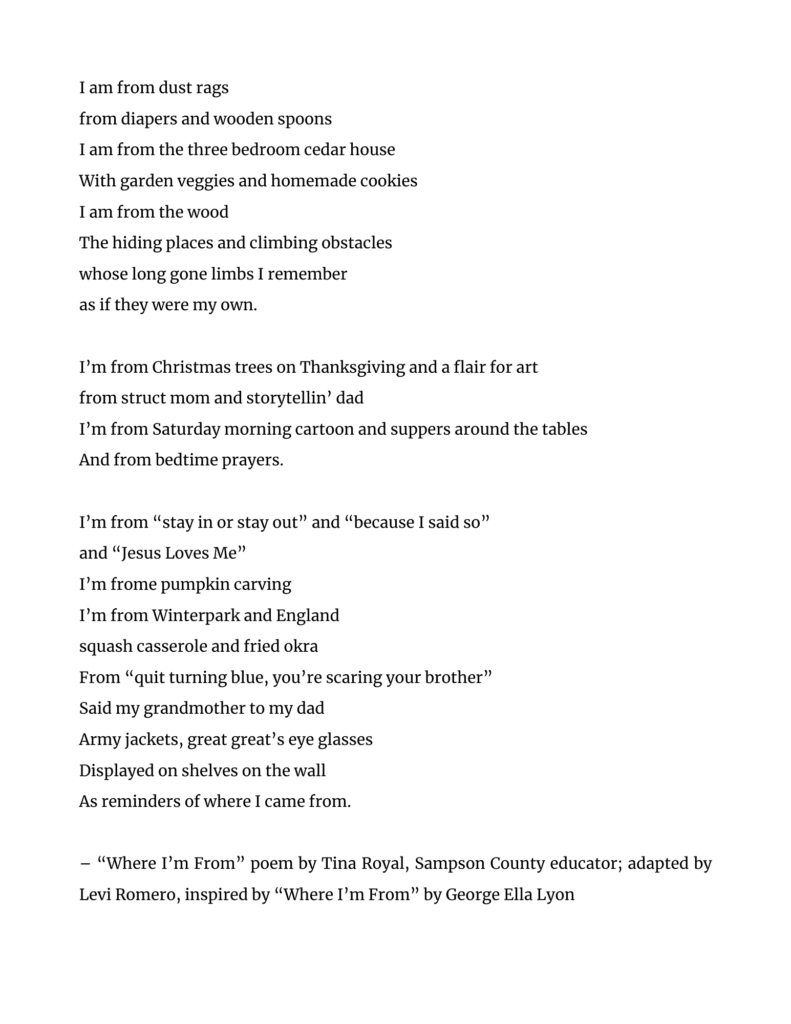
Resilience and trauma-informed learning
Eulanda Thorne, program manager with the NC Center for Resilience & Learning facilitated a session regarding Adverse Childhood Experiences (ACEs), which she describes as traumatic events that occur in childhood that can have an impact on health and wellbeing.
When defining trauma, she explains that it is not the distressing event itself, but how one’s nervous system responds to the event and the degree to which it can cope. Using an assessment, individuals are able to identify their ACE score and from there work towards the goal of implementing strategies for self-regulation.
“I hope that this network will help me in the school building to where now I’m more vocal and can be an advocate for the kids and also my coworkers, and they can see that leadership like type of role in me — that I’m available to help anybody that needs help.”
Kurtis Alston, Greene County educator and 24-25 Rural Teacher Leader Network cohort member
Importantly, Thorne shared her team’s core belief that “adversity does not determine your destiny.” In alignment, she expressed that mindset shifts regarding how educators view behavior and discipline can be achieved through resilience and trauma-informed strategies.
“We’re talking about leading with love, leading with more empathy and compassion, leading with more patience,” Thorne said.
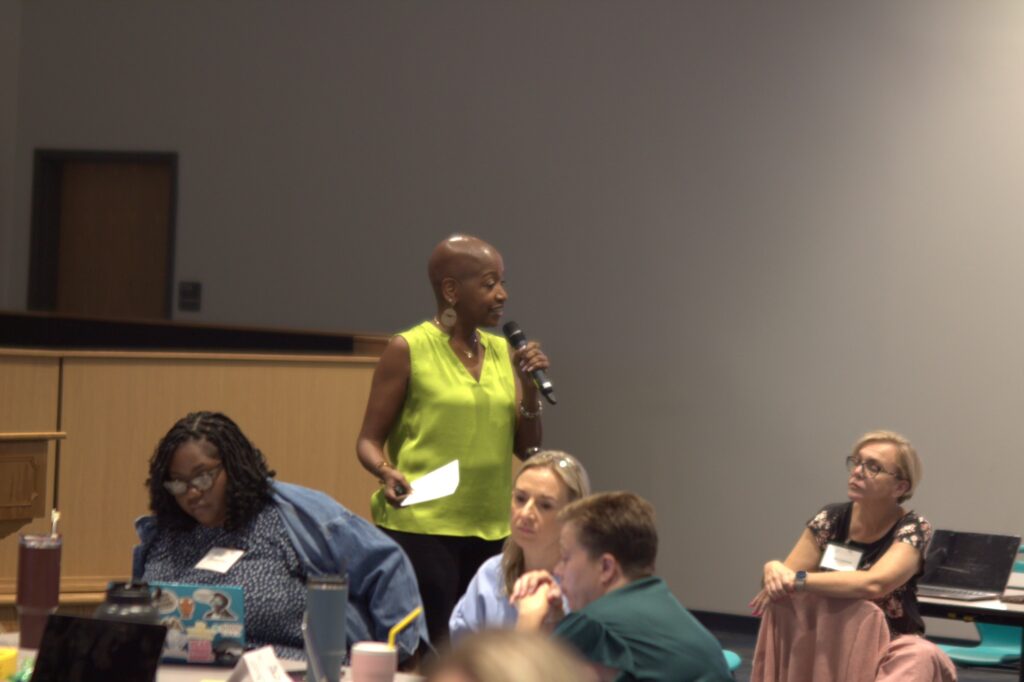
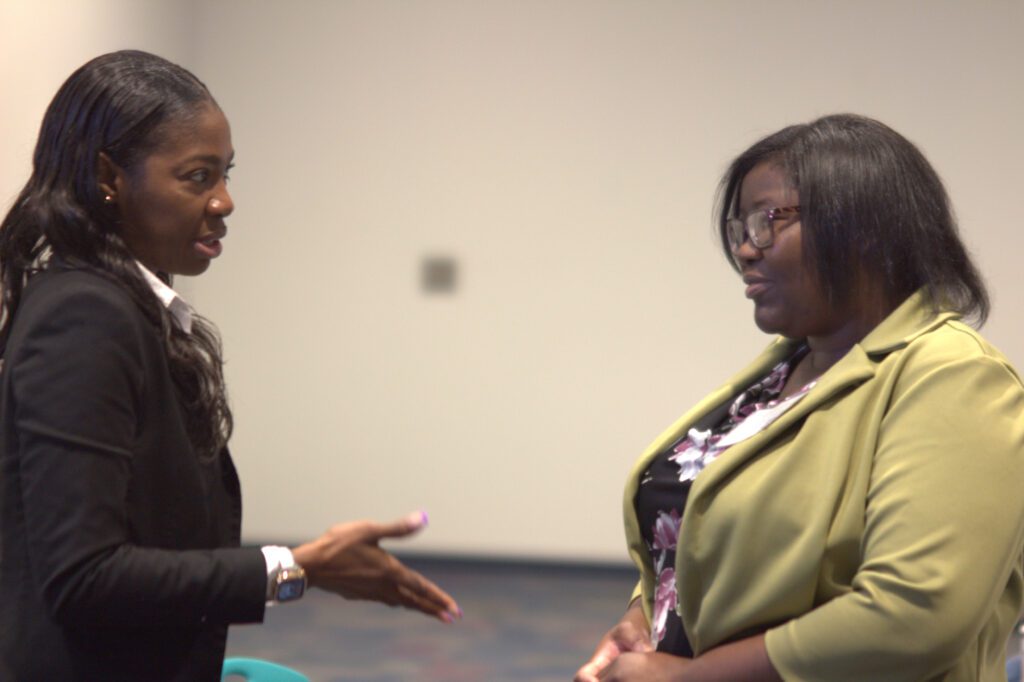
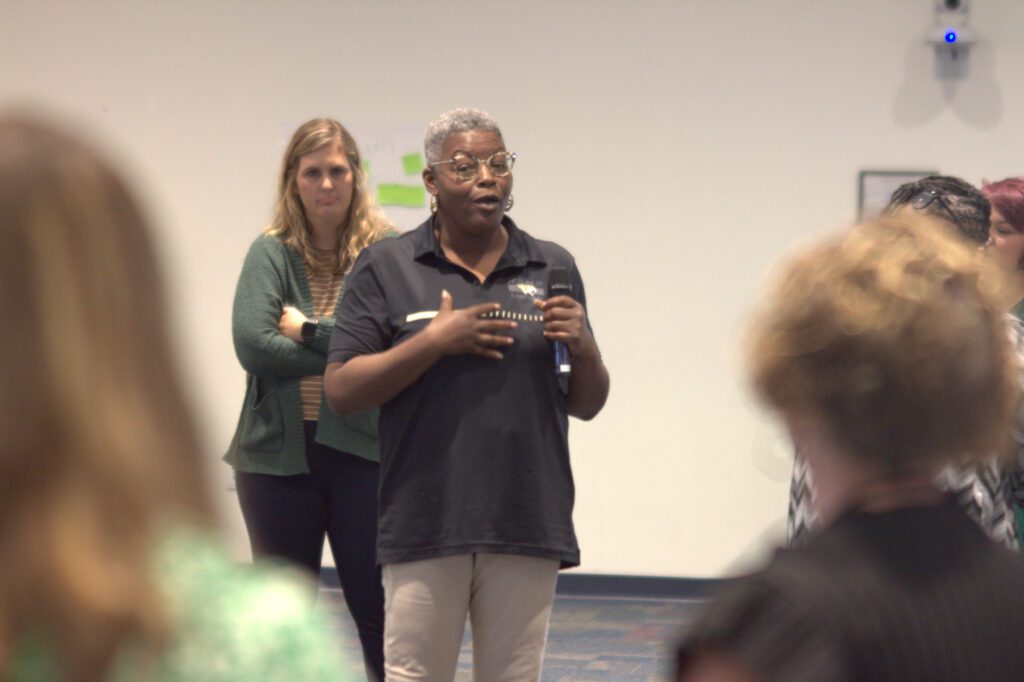

Opportunity for collaboration ahead
For Sampson County Schools educator Jemeikka Jasso-Steele, the network has already helped show her that she is not alone.
“There are other teachers in other subjects and other counties that are experiencing the same burnout and the same passion and desire to do it, but also being tired,” Jasso-Steele said.
While she said, “It’s okay to be tired,” she also added, “It’s okay to want to pray and want to renew yourself.” She’s looking forward to the network being an opportunity to come together and identify with each other.
Duplin County Schools Exceptional Children educator Alishia Tyndall expressed feeling encouraged when knowing that “other teachers want to level the playing field. They don’t want to have an ableist classroom. They want to avoid those discrepancies and exclusions.” She views RTLN as an opportunity to take things that she has learned back to her respective schools system and overall have cross-district collaboration.
Recommended reading
